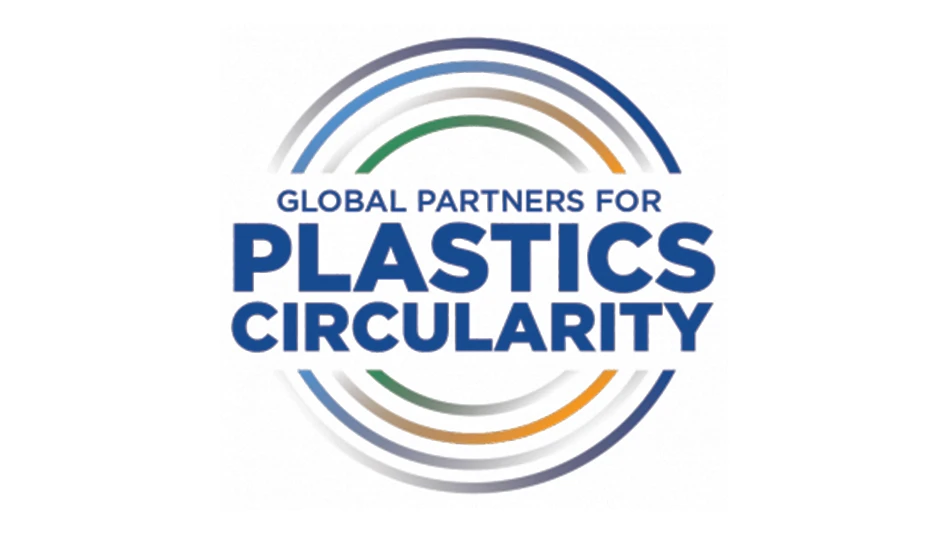
Image courtesy of Global Partners for Plastics Circularity
As negotiators soon will descend on Busan, South Korea for the fifth and potentially final round of talks on the United Nations Environment Programme’s (UNEP’s) Global Plastics Agreement, the Washington-based Global Partners for Plastics Circularity (GPPC) says it is reaffirming its strong commitment to securing an effective agreement that helps end plastic pollution by the event’s close.
UNEP’s Intergovernmental Negotiating Committee, or INC-5, is set to begin on Nov. 25 and will conclude Dec. 1. The GPPC, a multinational collaboration of associations and companies that make, use and recycle plastics, says it is calling on governments to “stay the course” and finalize an ambitious, implementable and inclusive agreement that prevents plastic pollution and accelerates a circular economy for plastics, where they are designed for reuse and recycling and remade into new products at their end of life.
RELATED: CEOs call on governments to agree to actionable Global Plastics Treaty
“We have the power to shape a future where society continues to reap the immense benefits of plastics without them becoming pollution,” says Benny Mermans, chair of the World Plastics Council. “The best path forward—one that minimizes unintended consequences—is a global agreement anchored in circularity, treating used plastics as valuable resources rather than waste.”
The GPPC says it is ready to contribute expertise and support the treaty-framing process through a range of resources to help inform government negotiators in making science-based decisions, including:
- Decision Tree to Prevent Plastic Pollution: The organization says this decision-making tool is designed to assist national governments to identify and prevent plastic products that are most prone to leak into the environment from becoming pollution. The tool provides a common assessment framework and promotes a circular approach for plastics management, while allowing flexibility to account for each country’s unique capacities, circumstances and needs.
- International Council of Chemical Association (ICCA) plastic additives database: Building on UNEP’s Chemicals in Plastics Technical Report, coupled with verified data from industry, GPPC says the database provides greater transparency and promotes the sound management of additives in commerce used in plastics.
- Topic-specific resources: The GPPC says its resources page contains fact sheets, webinar recordings and videos that can help inform the negotiations. Resources have been created on a variety of topics, including additives in plastics, designing for circularity, funding waste management infrastructure and more.
- Policy positions: The global plastics and chemicals industries have put forth policy positions containing the key elements of an enabling global agreement to end plastic pollution.
- Oxford economics study: Commissioned by the ICCA, this study assesses the socioeconomic and environmental impacts of restricting plastic production. The GPPC says the findings highlight potential unintended consequences across various industries and global economies that could be expected in response to a cap on plastics production, particularly for communities least equipped to bear additional economic burdens.
RELATED: BIR Autumn 2024: A treaty in troubled waters | Forging a global agreement
“The progress already achieved on many aspects of the agreement highlights our collective resolve to end plastic pollution,” says Chris Jahn, council secretary of the ICCA. “However, we must not let areas of uncertainty or disagreement stall the progress we’ve made. We stand ready to offer industry’s knowledge and support to advance a transformative global treaty that propels circularity, ensuring plastics remain in the economy and out of the environment.”
The GPPC says it encourages negotiators to engage with its resources that can help inform governments on science-based topics and impactful policies to create an effective global plastics agreement that all countries can implement.
Latest from Recycling Today
- BMW Group, Encory launch 'direct recycling’ of batteries
- Loom Carbon, RTI International partner to scale textile recycling technology
- Goodwill Industries of West Michigan, American Glass Mosaics partner to divert glass from landfill
- CARI forms federal advocacy partnership
- Monthly packaging papers shipments down in November
- STEEL Act aims to enhance trade enforcement to prevent dumping of steel in the US
- San Francisco schools introduce compostable lunch trays
- Aduro graduates from Shell GameChanger program





